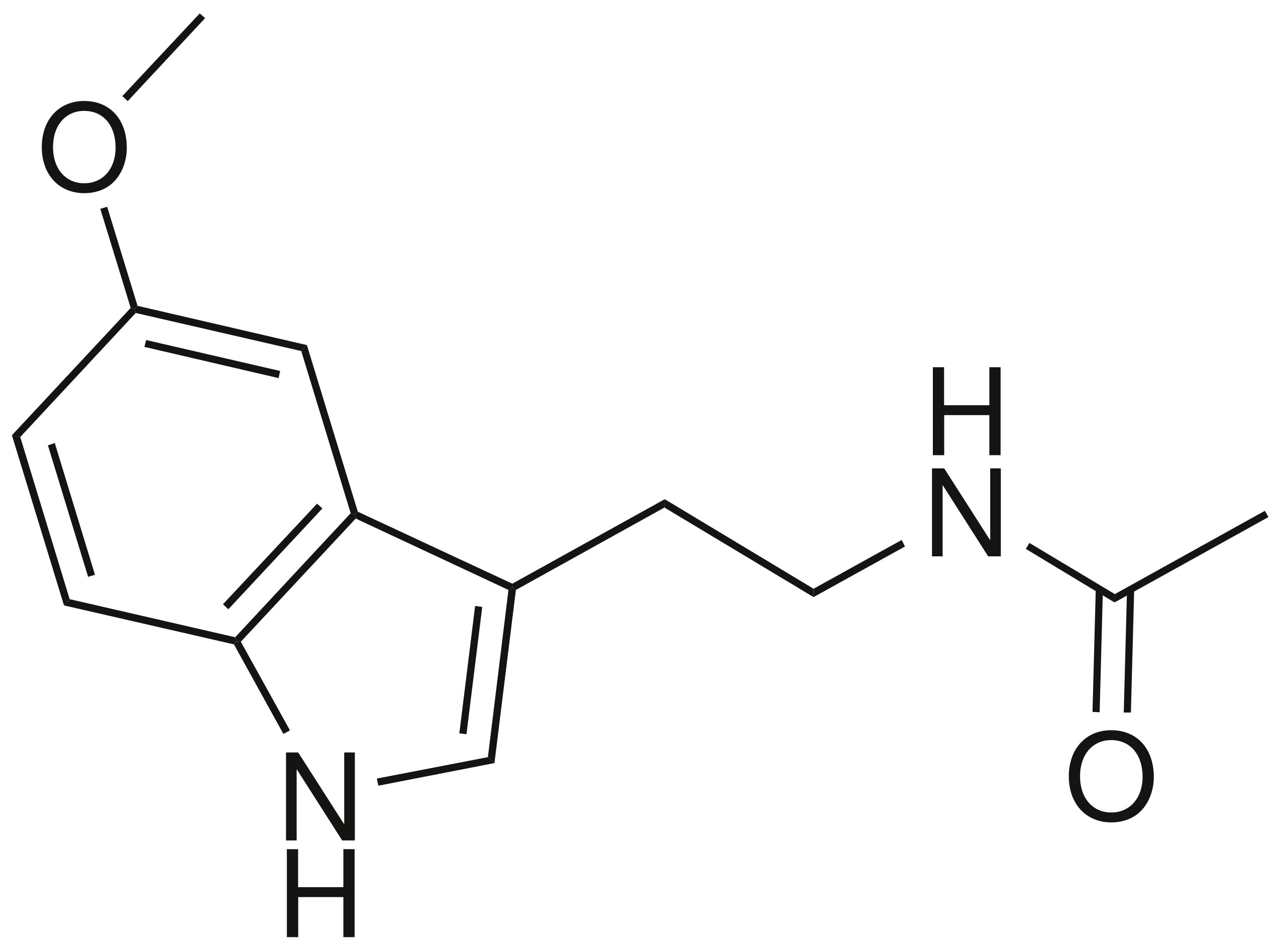
Highlights:
- Melatonin controls sleep and circadian rhythm
- Nighttime melatonin secretion decreases with age and is associated with poor quality of sleep
- Nightly melatonin supplementation has been shown to improve sleep onset in some studies
Melatonin is the primary hormone secreted by the pineal gland near the center of the brain. Among its main functions is the control of sleep and circadian rhythm. Unfortunately, the pineal gland is one of the organs most susceptible to calcification with age and as a result melatonin production from the pineal gland decreases with age (https://www.ncbi.nlm.nih.gov/pmc/articles/PMC6017004/, https://pubmed.ncbi.nlm.nih.gov/3783419/, https://www.ncbi.nlm.nih.gov/pmc/articles/PMC4334454/). For healthy adults, melatonin levels increase 10 to 20 fold at night time compared to daytime helping us fall and stay asleep. In contrast, for the elderly, the nighttime melatonin increase can be as low as two-fold. This often leads to sleep disorders among the elderly. Melatonin supplementation has been shown to improve sleep onset for people who have trouble falling asleep and helps in staying asleep the first third of the night (https://www.nccih.nih.gov/health/melatonin-what-you-need-to-know).
The biology:
Melatonin is synthesized by the pineal gland cells from its precursor serotonin through the action of two enzymes that are produced in response to darkness. Once synthesized, melatonin is released in systemic circulation and reaches its target tissues in the body. Melatonin production is inhibited by light information that reaches the pineal gland through the SCN region of the hypothalamus which is the site of the body’s circadian clock (https://www.ncbi.nlm.nih.gov/pmc/articles/PMC5405617/).
Melatonin acts on three types of cellular receptors (MT1, MT2 and MT3) broadly distributed in sections of the brain, retina and cornea as well as other organs of the body. Melatonin controls sleep-wake cycle, body temperature cycle and neuroendocrine rhythm by activating MT1 and MT2. Melatonin’s effect on the MT3 receptors controls blood pressure, cardiovascular function, immune system regulation and protecting the brain from oxidative stress by antioxidant action and clearing of free radicals.
Melatonin also plays a critical role in energy expenditure and body mass regulation. Melatonin’s action on adipose tissue prevents increase in body fat with age.
Clinical evidence:
The many fundamental roles melatonin plays in the body, together with the fact that melatonin level declines with age provides basic support for supplementation. Here are the clinical trials with melatonin supplementation. As we will see, some provide clear evidence of benefit while others do not. In the 2018 DelSoM study, Melatonin supplementation was tested on people with delayed sleep-wake phase disorder (DSWPD). These people have a hard time falling asleep before 2 am in the morning and need to sleep till 10 am or later. A group of patients with DSWPD received 0.5 mg dose of instant-release melatonin or placebo 1 hour before bed-time for 4 weeks. The melatonin group had a 34 minute earlier sleep onset and was able to sleep better the first third of the night and had better daytime functioning. Why did they sleep better only the first third of the night? Actually sleep quality the first third of the night is what they were measuring as the ‘secondary outcome’ of the trial. They don’t report whether the subjects were sleeping better the rest of the night (https://www.ncbi.nlm.nih.gov/pmc/articles/PMC6005466/). A review of two previous studies from 2016 also found that people with DSWPD could fall asleep 22 minutes faster when they took melatonin (https://www.nccih.nih.gov/health/melatonin-what-you-need-to-know). But does melatonin help with treating chronic insomnia? This is defined as having trouble falling asleep or staying asleep or both for over one month. According to the American Academy of Sleep Medicine (2017) and the American College of Physicians (2016), there’s not enough strong evidence on the effectiveness of melatonin supplementation for chronic insomnia.
It is also worth discussing what happens to plasma melatonin levels when we take oral melatonin. Plasma melatonin levels peak about 1 hour after taking an oral dose and return to baseline levels after 4 to 8 hours. Taking an oral dose of 1 to 5 mg melatonin can increase peak plasma level anywhere between 10 to 100 fold over normal nighttime levels (https://www.ncbi.nlm.nih.gov/pmc/articles/PMC5405617/).
Safety:
Melatonin appears to be safe for short-term use, but clinical safety data for long-term use is currently not available. Melatonin supplementation is not recommended for people with dementia. Some caution is warranted for people who are taking melatonin who also have high blood pressure, bleeding disorders, seizure disorders, depression or for transplant recipients. A more complete list of safety considerations is available here:
https://www.webmd.com/vitamins/ai/ingredientmono-940/melatonin
https://www.nccih.nih.gov/health/melatonin-what-you-need-to-know
What I take:
I take 300 micrograms of extended release melatonin every night before bed.